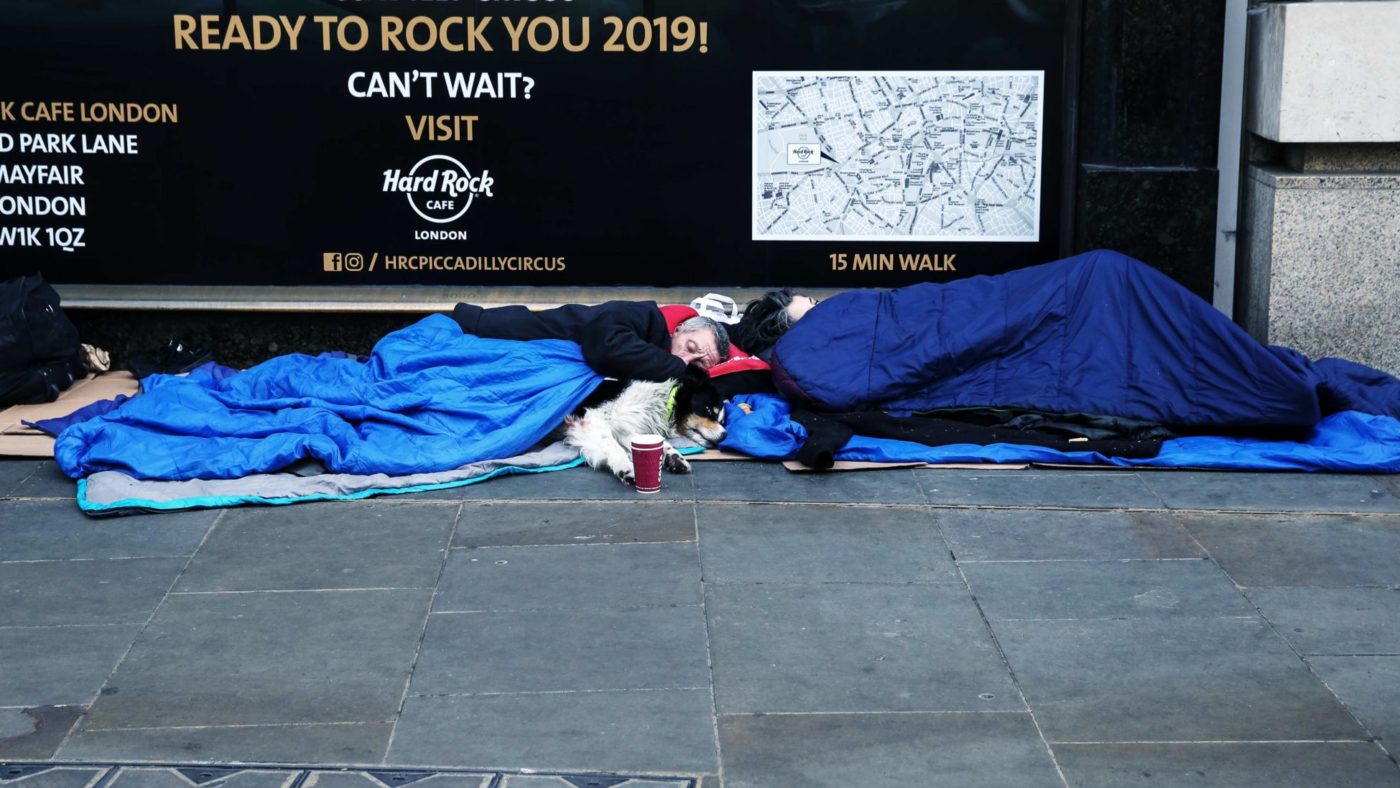With Boris Johnson’s election win early Friday morning, he has won over a huge number of working class voters. It would appear his vision of one nation Conservatism championed by Benjamin Disraeli is back. One issue that must be addressed is one that does not discussed often enough: homelessness and rough sleeping.
Chancellor Sajid Javid insists this is a problem that is receding, telling Sky News recently:
“Homelessness reached its peak in 2008 under the last Labour government. Since then it’s down by almost a half.”
Javid arrived at this claim by using the figure derived from official government datasets: statutory homelessness and temporary accommodation. Statutory homelessness is defined by Crisis as “applicants seeking help with housing due to imminent loss of accommodation or actual ‘rooflessness.’” Javid then added the two figures together to arrive at this claim.
The problem is, he is wrong. The statutory homeless rate has not declined. In fact, it has gone up under the Conservatives: from 42,390 in 2010 to 58,000 in 2017 an increase of 39%. Whilst the number of families and households living in temporary accommodation has increased 65% in the nine years since 2010.
And that’s before counting the ‘hidden homeless’ – people who live with family or friends, who sofa surf or who live in squats. These people do not show up on official figures.
This is by no means simply an issue for Conservative governments. Other parties, including Labour, are equally culpable – either because they have failed to provide council housing when in power or are simply ignorant of the scale of the problem.
Tale Wales, where housing is devolved and Welsh Labour run the government. They have promised to build 20,000 council houses by the end of 2021, but just 59 were built last year.
It’s no better in London. No council houses were built In 26 of the 33 London boroughs, although Sadiq Khan promised to build 1,916. The latest figures show just 42 have been completed.
Solving homelessness and rough sleeping is a clearly a complex issue. But the simple fact of the matter is we are not building enough houses. According to figures from Ministry of Housing, just 6,287 council homes were built for social rent in the whole of England in 18-19, the second lowest since records began in 1921.
To put things into perspective, the last year 100,000 council homes were built was in 1977, the year Callaghan’s reforms to homelessness started with The Housing Act. And even that’s not enough now. London, for example needs 30,972 social homes a year and 11,869 affordable homes – 42,841 in total.
One answer to London’s housing shortage is to use brownfield land. According to Shelter, this is only capable of producing 18,000 homes a year – a shortfall of some 25,000.
An obvious solution to this would be to allow more building on greenbelt land. The greenbelt is 1.6 million hectares of land covering 13% of England. If planning and building laws were changed just one tenth of this land could provide room for 160,000 new build homes surrounding London.
As well as the structural issues concerning supply, there are severe day-to-day problems for those who find themselves without a home. Living life on the streets takes its toll physically and emotionally. Homeless people are nine times more likely to commit suicide than the rest of the population. Partly because of this, the average life expectancy of a man living on the streets is 44 and for a woman 42.
There is also a strong case to reform the way we police rough sleeping. At the moment there are a number of orders and powers used to target rough sleepers in the name of public order. Taken together these form The Anti Social Behaviour, Crime and Policing Act (2014), which replaced the ASBO. According to Crisis, 29 of 81 local authorities targeted rough sleepers with these orders, including for such innocuous things as rummaging through bins and putting up tents to shelter in. Then there is the Vagrancy Act (1824), an archaic Victorian era law that criminalises rough sleeping and which, under Section 3 of the Act, makes begging a recordable offence – something which only compounds the problems of those most in need.
If Boris wants to be truly ‘one nation’ PM, he should scrap the Vagrancy Act and reform the laws that criminalise rough sleeping. We must also deregulate planning and building laws to increase the housing supply – which will reduce house prices – and focus on building more social and affordable homes. Until we take this issue seriously, we will fail all those sleeping rough and the thousands more hidden homeless.
Click here to subscribe to our daily briefing – the best pieces from CapX and across the web.
CapX depends on the generosity of its readers. If you value what we do, please consider making a donation.


